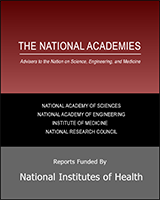NCBI Bookshelf. A service of the National Library of Medicine, National Institutes of Health.
Excerpt
Economic security, health and disability, and living conditions in old age are policy concerns throughout the world, but the nature of the problem differs considerably from continent to continent and between and within countries. In sub-Saharan Africa older people make up a relatively small fraction of the total population, and traditionally their main source of support has been the household and family, supplemented in many cases by other informal mechanisms, such as kinship networks and mutual aid societies. Although very little careful empirical research has been undertaken on long-term trends in the welfare of older people, there are a number of reasons to believe that traditional caring and social support mechanisms in sub-Saharan Africa are under increasing strain.
Contents
- The National Academies
- Panel on Policy Research and Data Needs to Meet the Challenge of Aging in Africa
- Committee on Population
- Acknowledgments
- Executive Summary
- Part I. Report
- Part II. Papers
- 2. Aging in Sub-Saharan Africa: The Changing Demography of the RegionVictoria A. Velkoff and Paul R. Kowal.
- 3. Demographic Impacts of the HIV Epidemic and Consequences of Population-Wide Treatment of HIV for the Elderly: Results from MicrosimulationSamuel J. Clark.
- 4. The HIV/AIDS Epidemic, Kin Relations, Living Arrangements, and the African Elderly in South AfricaM. Giovanna Merli and Alberto Palloni.
- INTRODUCTION
- PREVIOUS RESEARCH ON THE IMPACT OF EPIDEMICS ON FAMILIES AND HOUSEHOLDS
- THE IDENTIFICATION PROBLEM
- DATA ON LIVING ARRANGEMENTS
- A PROFILE OF SOUTH AFRICA’S PROVINCES
- THE DEMOGRAPHIC IMPACT OF HIV/AIDS: A SIMPLE MACROMODEL BASED ON BACKWARD AND FORWARD PROJECTIONS
- RESULTS FROM THE MODEL
- ANALYSIS OF CENSUS DATA
- Patterns of Living Arrangements of the African Elderly
- CONCLUSION
- APPENDIX TO CHAPTER 4
- REFERENCES
- 5. Older Adults and the Health Transition in Agincourt, Rural South Africa: New Understanding, Growing ComplexityKathleen Kahn, Stephen Tollman, Margaret Thorogood, Myles Connor, Michel Garenne, Mark Collinson, and Gillian Hundt.
- 6. The Situation of Older People in Poor Urban Settings: The Case of Nairobi, KenyaAlex C. Ezeh, Gloria Chepngeno, Abdhalah Ziraba Kasiira, and Zewdu Woubalem.
- 7. Labor Force Withdrawal of the Elderly in South AfricaMurray Lam, Gloria Leibbrandt, and Vimal Ranchhod.
- 8. HIV/AIDS and Older People in South AfricaVictoria Hosegood and Ian M. Timaeus.
- 9. Interactions Between Socioeconomic Status and Living Arrangements in Predicting Gender-Specific Health Status Among the Elderly in CameroonBarthélémy Kuate-Defo.
- 10. Survey Measures of Health: How Well Do Self-Reported and Observed Indicators Measure Health and Predict Mortality?Randall Kuhn, Omar Rahman, and Jane Menken.
- 2. Aging in Sub-Saharan Africa: The Changing Demography of the Region
- Appendixes
This study was supported by Contract No. N01-OD-4-2139, TO#119 between the National Academy of Sciences and the National Institutes of Health and the National Institute of Aging. Any opinions, findings, conclusions, or recommendations expressed in this publication are those of the author(s) and do not necessarily reflect the views of the organizations or agencies that provided support for the project.
Suggested citation:
National Research Council. (2006). Aging in Sub-Saharan Africa: Recommendations for Furthering Research. Panel on Policy Research and Data Needs to Meet the Challenge of Aging in Africa. Barney Cohen and Jane Menken, Eds. Committee on Population, Division of Behavioral and Social Sciences and Education. Washington, DC: The National Academies Press.
The project that is the subject of this report was approved by the Governing Board of the National Research Council, whose members are drawn from the councils of the National Academy of Sciences, the National Academy of Engineering, and the Institute of Medicine. The members of the committee responsible for the report were chosen for their special competences and with regard for appropriate balance.
- NLM CatalogRelated NLM Catalog Entries
- [Families in crisis and population policies in Sub-Saharan Africa].[Polit Afr. 1991][Families in crisis and population policies in Sub-Saharan Africa].Locoh T. Polit Afr. 1991 Dec; (44):78-90.
- Population trends and the status of population policy in Africa.[J Geog. 1982]Population trends and the status of population policy in Africa.Rogge JR. J Geog. 1982 Sep-Oct; 81(5):164-74.
- Recent trends and conditions of fertility.[Popul Bull UN. 1983]Recent trends and conditions of fertility.United Nations. Department of International Economic and Social Affairs. Population Division. Popul Bull UN. 1983; (15):1-14.
- Review Workforce Innovations to Expand the Capacity for Surgical Services.[Essential Surgery: Disease Con...]Review Workforce Innovations to Expand the Capacity for Surgical Services.Bergström S, McPake B, Pereira C, Dovlo D. Essential Surgery: Disease Control Priorities, Third Edition (Volume 1). 2015 Apr 2
- Review Changing Patterns of Disease and Mortality in Sub-Saharan Africa: An Overview.[Disease and Mortality in Sub-S...]Review Changing Patterns of Disease and Mortality in Sub-Saharan Africa: An Overview.Baingana FK, Bos ER. Disease and Mortality in Sub-Saharan Africa. 2006
- Aging in Sub-Saharan AfricaAging in Sub-Saharan Africa
Your browsing activity is empty.
Activity recording is turned off.
See more...
